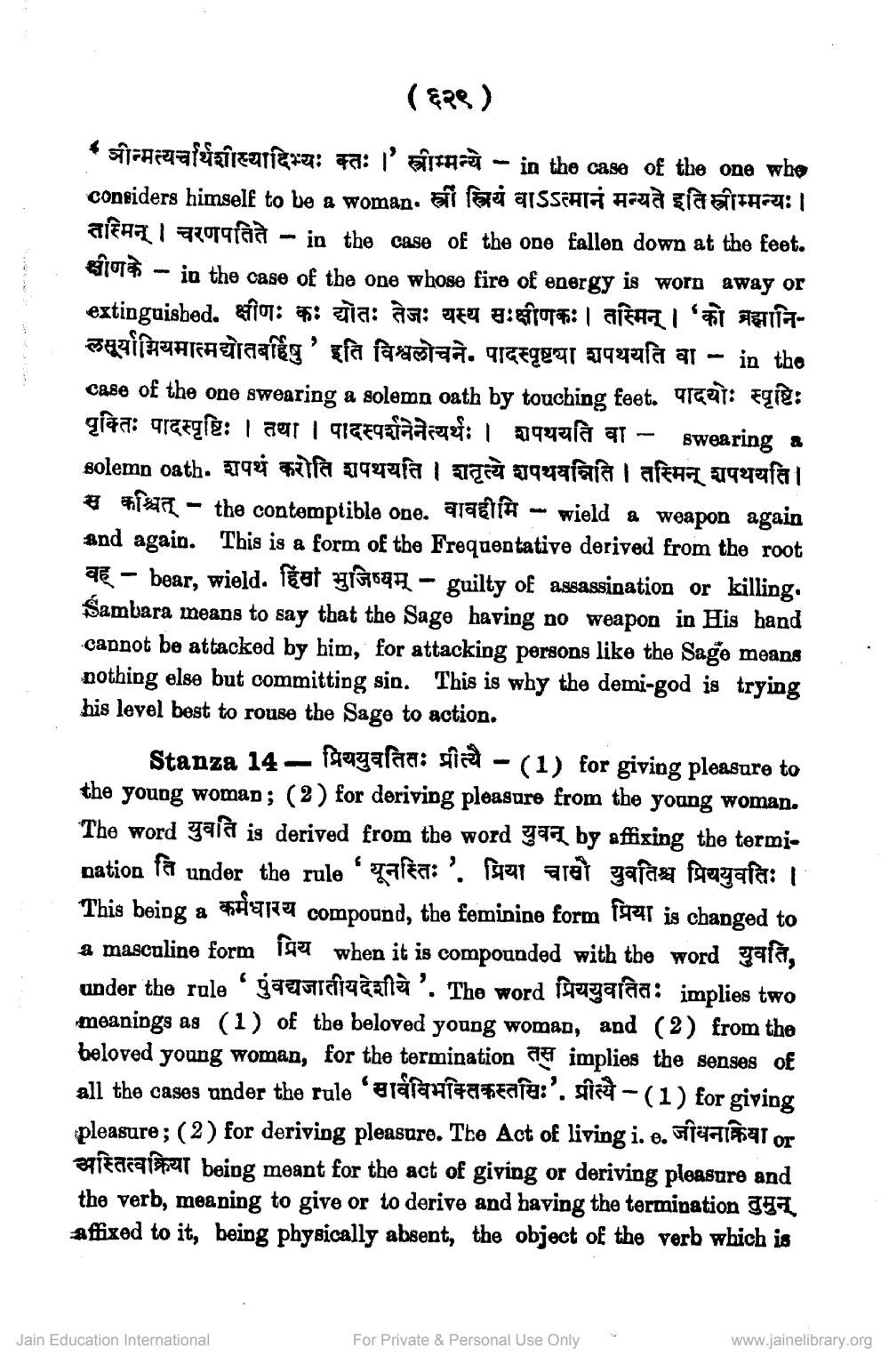________________
(६२९)
जीन्मत्यर्थशास्यादिभ्यः क्तः ।' स्त्रीम्मन्ये - in the case of the one whe considers himself to be a woman. स्त्री स्त्रियं वाऽऽत्मानं मन्यते इतिस्त्रीम्मन्यः। तस्मिन् । चरणपतिते - in the case of the one fallen down at the feet. क्षीणके - in the case of the one whose fire of energy is worn away or extinguished. क्षीणः कः द्योतः तेजः यस्थ साक्षीणकः। तस्मिन् । 'को ब्रह्मानिलसूर्यामियमात्मद्योतर्हिषु' इति विश्वलोचने. पादस्पृष्टया शपथयति वा - in the case of the one swearing a solemn oath by touching feet. पादयोः स्पृष्टिः पृक्तिः पादस्पृष्टिः । तथा । पादस्पर्शनेनेत्यर्थः । शपथयति वा - swearing a solemn oath. शपथं करोति शपथयति । शतृत्ये शपथयन्निति । तस्मिन् शपथयति। स कश्चित् - the contemptible one. वावहीमि - wield a weapon again and again. This is a form of the Frequentative derived from the root वह् - bear, wield. हिंसा भुजिष्यम् - guilty of assassination or killing. Sambara means to say that the Sage having no weapon in His hand capnot be attacked by him, for attacking persons like the Sage means nothing else but committing sin. This is why the demi-god is trying his level best to rouse the Sage to action.
Stanza 14- प्रिययुवतितः प्रीत्यै - (1) for giving pleasure to the young woman; (2) for deriving pleasure from the young woman. The word युवति is derived from the word युवन् by affixing the termination ति under the rule 'यूनस्तिः '. प्रिया चासो युवतिश्च प्रिययुवतिः । This being a Papa compound, the feminine form firar is changed to a masculine form प्रिय when it is compounded with the word युवति, under the rule 'पुंवद्यजातीयदेशीये'. The word प्रिययुवतित: implies two meanings as (1) of the beloved young woman, and (2) from the beloved young woman, for the termination per implies the senses of all the cases under the rule 'सार्वविभक्तिकस्तसिः'. प्रीत्यै- (1) for giving pleasure; (2) for deriving pleasure. The Act of living i. e. जीवनक्रिया or अस्तित्व क्रिया being meant for the act of giving or deriving pleasure and the verb, meaning to give or to derive and having the termination THT affixed to it, being physically absent, the object of the verb which is
For Private & Personal Use Only
Jain Education International
www.jainelibrary.org




